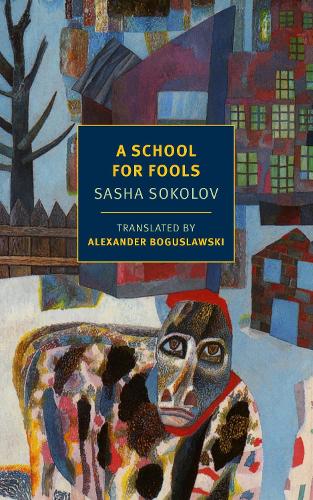
A School For Fools
(Paperback, Main)
Publishing Details
A School For Fools
By (Author) Sasha Sokolov
Translated by Alexander Boguslawski
New York Review Books
New York Review Books
15th December 2015
21st January 2016
Main
United States
Classifications
General
Fiction
891.7344
Physical Properties
Paperback
248
Width 127mm, Height 204mm, Spine 10mm
212g
Description
By turns lyrical and philosophical, witty and baffling, A School for Fools confounds all expectations of the novel. Here we find not one reliable narrator but two "unreliable" narrators: the young man who is a student at the "school for fools" and his double. What begins as a reverie (with frequent interruptions) comes to seem a sort of fairy-tale quest not for gold or marriage but for self-knowledge. The currents of consciousness running through the novel are passionate and profound. Memories of childhood summers at the dacha are contemporaneous with the present, the dead are alive, and the beloved is present in the wind. Here is a tale either of madness or of the life of the imagination, in conversation with reason, straining at the limits of language; in the words of Vladimir Nabokov, "an enchanting, tragic, and touching work."
Reviews
"A work of genius voiced by a narrator and his double simultaneously. Its a Joycean work that unravels in fits and starts, but always beautifully....[by] one of the great living Russian writers." Flavorwire
Sokolovs A School for Fools should be considered one of the finest 20th-century Russian novels. Harvey Pekar, The Washington Post
If Joyce had written the last chapter of Ulysses in Russian it would have sounded like this." Vladimir Markov
[Sokolov] develops ideas and techniques from Gogol, Dostoevsky, and Joyce, to name a few predecessorsbut he uses themes like doubling, madness, and sexual obsession in a way that is his own and feels completely new. . . The hero of the book is language itself, and Im happy to say that the previous inadequate translation has been superseded by Alexander Boguslawskis superb one. . . You wont be disappointed. Stephen Dodsen, The Millions
Sokolov is one of those rare novelists whose primary concern is the praise and exploration of a language rather than the development of a position. In this, he is in the line of Gogol, Lermontov, Nabokov. For me, the Bible says it: The Word is God, Sokolov says, and God is more important than life. David Remnick, The Washington Post
An enchanting, tragic, and touching work. Vladimir Nabokov
[A School for Fools] will undoubtedly come to be recognized as one of the great classics of Russian prose. Newsweek
The voice is amazingly sensitive and imaginative, gloriously lucid of language and full of broad comedy and whimsical wit. For all its gloominess, this strange novel is a celebration of life. The Washington Post
A lyrical vision of extraordinary intensity. Sokolov is an astounding new voice. Chicago Daily News
A puzzling and wonderful book. The novel is an anti-authoritarian statement, a compassionate cry for understanding of those who are different, the nonconformists of any society who must find their own way. The Kansas City Star
One of the most original and talented works to emerge from the Soviet Union in many years. The Times Literary Supplement
Author Bio
Sasha Sokolov was born in 1943 in Canada, the son of a high-ranking Soviet diplomat. Sokolov studied journalism at Moscow State University and attempted to escape from the USSR, for which he was imprisoned. In 1975, he was allowed to leave the country following an international human rights scandal. The manuscript of A School for Fools, his first novel, was smuggled out of the Soviet Union that same year, and published to great acclaim in the west. A School for Fools has been translated into over twenty languages. Sokolov is the recipient of the prestigious Andrei Bely Prize in 1981, and of the Pushkin Prize for Literature in 1996. He is also the author of novels Astrophobia and Between Dog and Wolf, and of a book of essays In the House of the Hanged. Alexander Boguslawski is a translator and professor of Russian studies at Rollins College in Winter Park, Florida.
